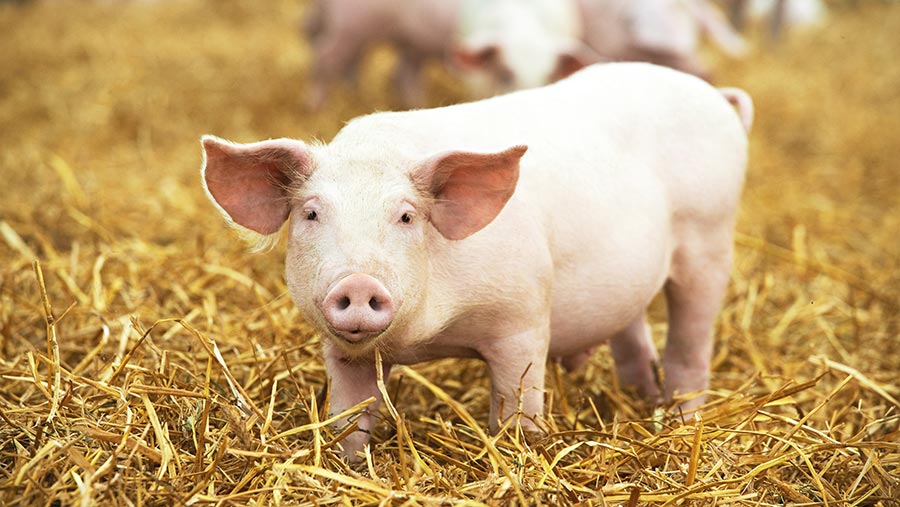Decimated pig sector tops food security concerns at Yorks show
 © Kadmy/Adobe Stock
© Kadmy/Adobe Stock A 1.5 million-head drop in pig supply was highlighted among a raft of food security concerns raised to a panel at the Great Yorkshire Show last week (12-15 July).
Looming food production issues should be a wake-up call to government and supermarkets as large landowners plant trees in a “dash for cash”, farmers heard at the Future Farmers breakfast meeting.
Farmers Weekly heard pig producers were still losing £10 a weaner or nearly £300 a sow a year, pushing independent farmers out of business.
See also: No price lift certainty with 100,000 pig drop
NFU deputy president Tom Bradshaw warned that sustainable agriculture was not just about food today, it was about giving farmers a fair return so there would be food next year.
“It’s quite amazing that we had a government tree-planting strategy before we had a government food strategy,” he said.
Oversupplied market
A surplus of pork had seen Morrisons spend hundreds of thousands of pounds on marketing since autumn 2021 in a bid to increase demand to match supply.
Sophie Throup, Morrisons’ head of agriculture, fisheries and sustainable sourcing, blamed labour shortages in the much-maligned processing sector and an imbalanced market for the “incredibly difficult” times in the pig sector.
“There are an awful lot more pigs out there than we have demand for,” she said. “There is only so much pork that customers want to buy.”
Mr Bradshaw said: “My real fear, not just in the pig sector, is that if retailers don’t get pricing models right, then the product won’t be available next year.
“Because of the cost-of-living crisis, we are putting too much focus on the here and now, and not enough focus on what’s going to be available in 12 months’ time, and it’s a massive concern.”
Food and flowers
Holly Story, environmental management specialist at land agent and consultancy group GSC Grays, said farms could have profit, biodiversity, and healthy soils.
“Continued learning and gaining skills and being open-minded goes a long way to developing a system and a whole farm business and approach that it truly sustainable,” she said.
“Sustainability is not just environmental, it’s economic, social, and environmental. Don’t see sustainability as a green word – it’s something that should apply across the whole business.
“More diversity is something really powerful, not just in terms of more species of birds and plants, but in terms of diversity of activities and land uses on your farm.”
But Mr Bradshaw said that delivering clean air, clean water, net zero, habitats, tree planting and biodiversity recovery for £3bn was impossible.
“I know government has accepted the need to have private capital coming in and [is] looking at how dual funding can work.
“But there is no way the money on offer at the moment can deliver the scale of the ambition contained within the agriculture policy.”
Food production stats
21% drop in pig servings and weaners
- This comes at a time when EU prices are historically high, and herds are contracting
Source: Agrosoft Data
June milk deliveries are 2.1% down on the year
- High input costs continue to challenge farm budgets
- Rising milk prices have not lifted milk output because there has been no “net benefit” to farm margins
- Latest forecasts are for 12.32bn litres for the 2022-23 season, which is 1% below last season
Costs have hampered livestock production since the spring
- UK red diesel was 70% dearer year-on-year in April
- Feed wheat price was up 83% on the year in May
- Fertiliser was up 179% on the year in April
UK is not self-sufficient in food production
- The UK produces 60% of its domestic food consumption by economic value, part of which is exported
- About 48% of food eaten in the UK is produced in the UK
Source: AHDB and Defra

